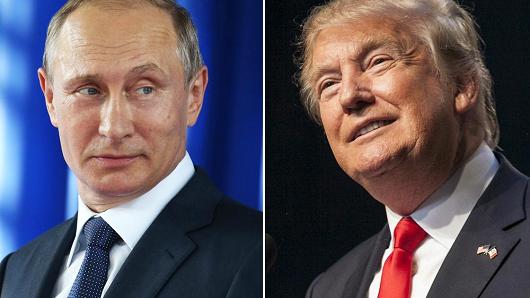Trump under investigation for obstruction of justice
June 15, 2017 | Expert Insights

Reports have emerged that the President of United States, Donald Trump, is being investigated for obstruction of justice by special counsel investigating the Russia’s involvement in the US presidential elections in 2016.
This development is likely to have a profound impact of the still nascent Trump presidency as it is also the first time he has been personally implicated.
What did the Russians do?
The consensus amongst the intelligence community in the US is that members of the Russian government interfered with the US elections to destabilize the presidential bid of former US Secretary of State, Hillary Clinton. It has also been reported that the Russian government tried to disrupt Clinton’s campaign through cyber attacks and email leaks and largely favoured Donald Trump over her.
Additionally, in March 2017, then-FBI director, James Comey noted that the agency was also investigating the possible links between Russian government and Trump campaign aides. A lot of the controversy has centred on the appointment of General Michael Flynn as the National Security Adviser. The then Acting Deputy Attorney General Sally Yates (who was also incidentally fired by Mr. Trump), warned the White House that Flynn was likely “compromised” and could be a target for blackmail by the Russians. Additionally, it also came into light that he may have misled the Vice President, Mike Pence, of the nature of his conversation with the Russian Ambassador, Sergey Kislyak.
Fired FBI director, James Comey, during his testimony in front of the Senate Intelligence Committee confirmed that Trump during his meetings with Comey had expressed “hope” that the FBI would drop its investigations against Flynn. Many lawmakers in the country immediately decried and said that this showed that the White House tried to influence an ongoing investigation and tried to obstruct the course of justice.
Investigations by the special counsel
As the scandal involving the Russian collusion continued to dominate the national and international conscience, in May of 2017, the current Deputy Attorney General, Rod Rosentein appointed former FBI director, Robert Mueller, as the special counsel to oversee the investigations to determine links between members of the Trump presidential campaign and the Russian government.
Most recent reports note that Mueller, along with his team, will be interviewing Dan Coats, the director of national intelligence and Adm Mike Rogers, the head of the National Security Agency to probe further into the matter. It has been alleged that in addition to his personal meetings with Comey, Trump tried to get Coats to intervene in the investigations. He had also allegedly asked both Coats and Rogers to release statements that would state that there was collusion between the Trump campaign and the Russian government. Both of them at the time had refused to do so. He will also reportedly be interviewing Richard Ledgett, the former deputy director of the National Security Agency in a bid to see if there had been obstruction of justice.
Assessment
Up until now Donald Trump has maintained that he wasn’t one of the subjects of the investigations, a charge he has repeated time and time again; this development throws a wrench into that narrative. Additionally, the Trump team and his supporters have instead blamed continuous leaks from intelligence agencies to the press on the investigations as well as the inner politics within the White House. This has led to Trump and several of his aides like Kellyanne Conway labelling the stories published by media houses like New York Times and Washington Post as “fake news.”
If the Trump has to weather the onslaught of controversies that surround his Presidency and Russia, then he along with senior members of his White House ought to create a cohesive messaging that goes beyond simply lashing out at the press and the opposition party. Multiple polls have placed his disapproval rating among the American public to be as high as 60%. With the White House not being seen as reliable, the administration must realize that simply decrying “fake news” will not change the minds and the views of majority of the Americans. A holistic communications strategy with a cohesive message just might stop the Trump presidency from derailing completely.








Comments